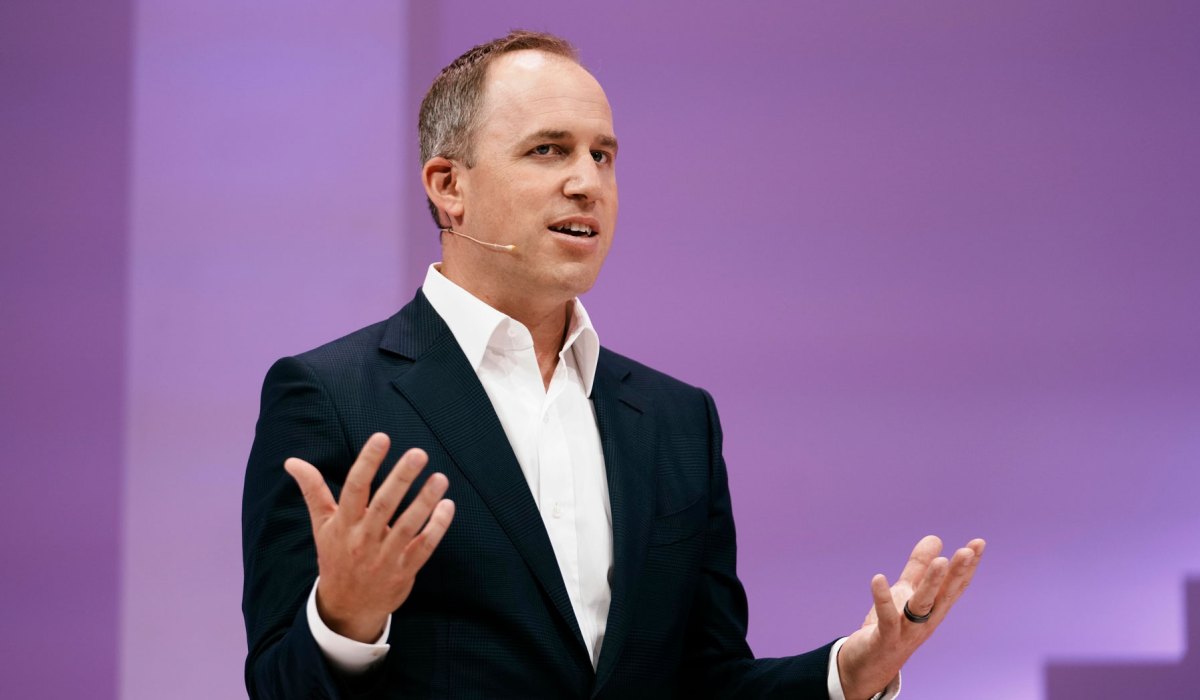After President Donald Trump announced his “Liberation Day” reciprocal tariffs late Wednesday, the stock market took a massive nosedive, with the market turmoil continuing this week.
For advisors who have been in the business for some time — and lived through events like the dot-com boom and bust of the late 1990s, the early 2000s recession, the 2008 financial crisis or the 2020 COVID-19 shutdown — much about recent events feels familiar.
Veterans of the wealth management industry say the tariff turmoil may feel unprecedented to clients, but there are hard-won lessons to be learned from previous crises.
Leave emotions behind and ‘hold tight’
Glenn J. Downing, founder and principal of CameronDowning in Miami, said in his view, the biggest lesson from these global calamities is “to hold tight, don’t sell and ride it out — or you’ll miss the inevitable upswing.”
Arielle Tucker, the founder of Connected Financial Planning in Zurich, Switzerland, launched her career just after the 2008 global crisis. She has lived and worked in Europe for over a dozen years on cross-border financial planning and U.S. tax issues.
“I consider it fortunate that I started saving during a down market,” she said. “It helped me develop a long-term perspective from the outset.”
READ MORE: Advisors reassess strategies in response to reciprocal tariffs
Tushar Kumar, a private wealth advisor with Twin Peaks Wealth Advisors in San Francisco, began advising clients in 2009.
“The key lesson I carry forward into every period of volatility is simple: Your emotions are a worse predictor of future market performance than almost any other data point,” he said.
Mike Anderson, a financial planner with AdviceOnly in San Diego, said as a relatively new financial advisor when the 2020 COVID-19 pandemic hit, he asked clients where they were during the OPEC embargo, the dot-com bubble or the 2008 financial crisis.
“These conversations reminded them of the tough times they’d already faced and overcome,” he said.
READ MORE: Proactive comms can keep jittery clients from blowing up inboxes during market turns
Each of these financial crises looked different to investors, said Nick Davis, founder of Brindle & Bay Wealth Managementin Frisco, Texas, but they all triggered the same emotional reflexes in investors: fear, uncertainty and the urge to act.
“In the moment, the instinct is always to do something,” he said. “But over time, I learned that the best ‘reaction’ is often a calm, grounded conversation with a client, not a trade.”
David W. Demming, founder and president of Demming Financial Services in Aurora, Ohio, said in 47 years in business his firm has “had lots of practice and given training to clients to appreciate and enjoy market declines.”
“They now understand that events like this are an opportunity to increase values when times settle down,” he said. “My favorite comment is, ‘The only markets I like to discuss are the farmers and fish markets.'”
Pete Bosse, CEO of MFPA Financial Planning in San Antonio, Texas, invoked the Baron Rothschild quote, “The time to buy is when there’s blood in the streets.”
“But if you’re retired or approaching retirement, watching your 401(k) dip into the red feels more like a crisis than an opportunity,” he said. “Market volatility is inevitable. What separates successful investors from anxious ones is resilience, not timing the market.”
Tom Balcom, CFP and founder of 1650 Wealth Management in Lauderdale-by-the-Sea, Florida, said for him the lesson of past crises is not to allow emotions to govern reactions.
“These are good times to reassess your risk tolerance level, current portfolio allocation and spending level both now and in the future,” he said.
Mix it up: Refuge in diversification
Across almost 25 years in the business, Michael Hansen, a certified financial planner and the co-founder of Frontier Wealth Strategies in Walnut Creek, California, said he has experienced everything from the dot-com bubble to what he called the current “Trumpcession.”
“What I have learned from all of these is that a well-diversified portfolio in quality companies … has to be the foundation,” he said. “And stay the heck away from bonds, gold and other flight-to-safety assets. You will always get in late and leave late, missing out on the upside.”
Scott Bishop, partner and managing director at Houston-based Presidio Wealth Partners, said one lesson of the past quarter century is that it is difficult to tell the timing of when these market corrections will happen and when they will rebound, “so trying to fully time them is folly.”
“With that in mind, I think it is prudent to have an allocation based on your outlook that can be overweighted to areas where you have high confidence,” he said. “It is also very good practice to have allocations outside of just stocks and bonds.”
Melissa Joy, president of Pearl Planning in Dexter, Michigan, said during the early 2000s recession, she learned the power of diversification.
“Ownership of value and international stocks went a long way to mitigating investment losses and being positioned for recovery,” she said.
Cannon Carr, partner regional director for the southeast at EP Wealth Advisors in Atlanta, said while it may look boring in good markets, over time diversification allows clients to navigate the unpredictable and unexpected.
“I like to tell clients, ‘You can’t predict when a crisis will occur, but you can anticipate that one will occur over the next decade — so plan for it,” he said.
The silver linings playbook: tax-loss harvesting, Roth conversions and more
Market plunges can also provide a perfect time for tax-loss harvesting, required minimum distributions (RMDs) and Roth rollovers, said Benjamin Simerly, founder of Lakehouse Family Wealth in Cleveland.
“If we have learned anything from prior downturns, it’s to invest in a free market’s ability to keep pushing for profits and buy the discount,” he said.
Lisa A.K. Kirchenbauer, founding partner and senior advisor at Omega Wealth Management in Arlington, Virginia, said based on decades of experience, her firm has all 2025 RMDs in cash already, and 529 distributions for later this year are being moved to cash.
“We have helped clients put aside in cash, or more defensive models, what they need for spending for at least six months,” she said.
Elliott Appel, the founder of Kindness Financial Planning in Madison, Wisconsin, said at the start of the 2020 COVID-19 market shock, he proactively did Roth conversions for clients as well as tax-loss harvesting.
“I’m having those same conversations now,” he said. “The Roth conversions were already a part of clients’ long-term tax planning. We simply took advantage of investments being on sale, so we could convert more shares. When the market recovered, clients received that recovery in their tax-free account.”
Matthew Echaniz, senior vice president of advisor engagement at Osaic in Chesapeake, Virginia, said that in his 25 years in the business, he has found client communication is key. Simply saying “stay the course” might be sound advice, but clients want to hear and see more from their advisor in times of volatility.
“Perhaps find some creative losses to take, explore if Roth conversions would be a good idea — so the eventual recovery growth could potentially be tax-free — update them on estate tax laws that are pending,” he said. “Just something to know you’re still working for them. Even better, ask about the accounts you’re not managing — yet. Perhaps they’re not getting the service they deserve and you can add more assets.”



























